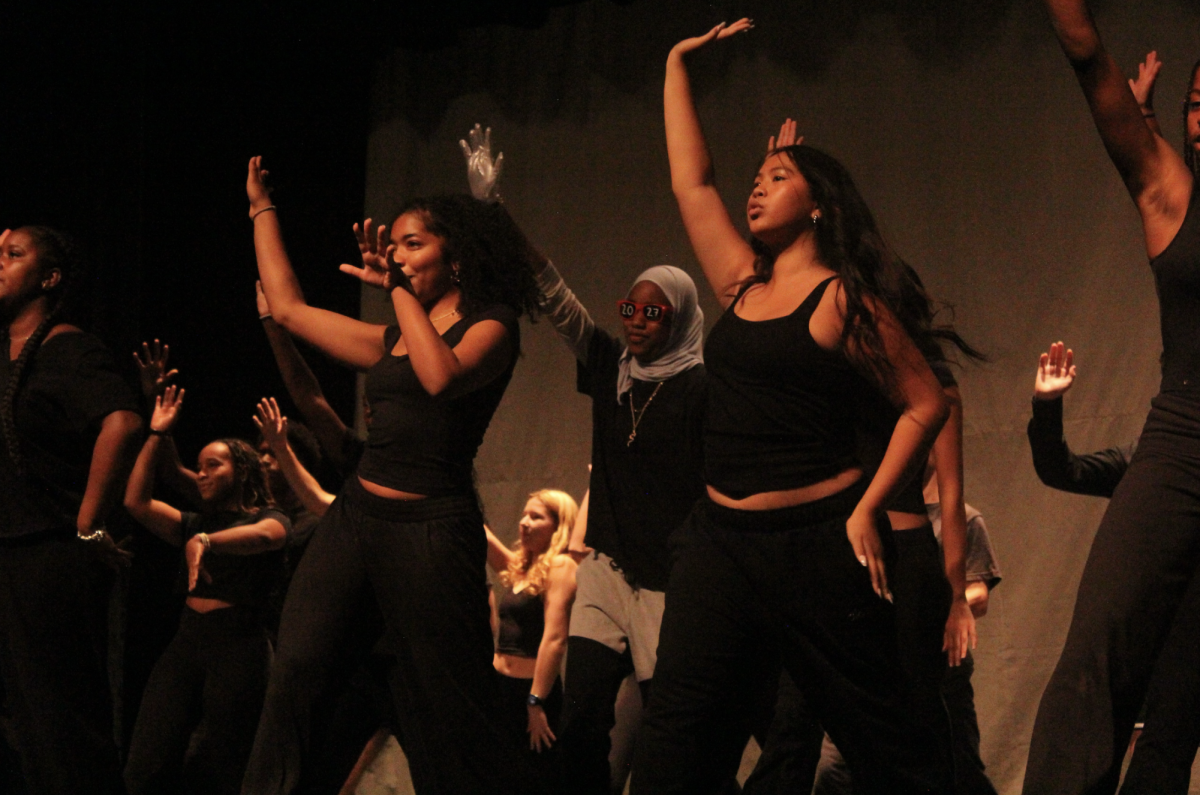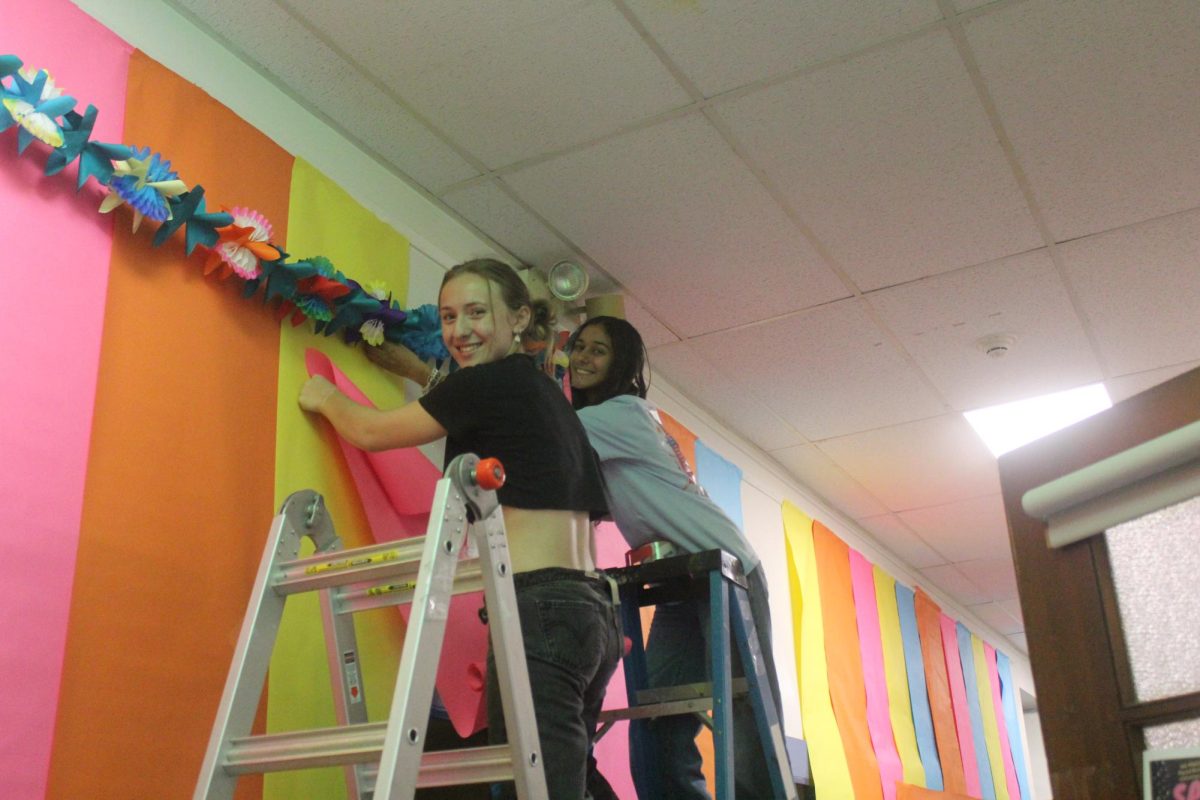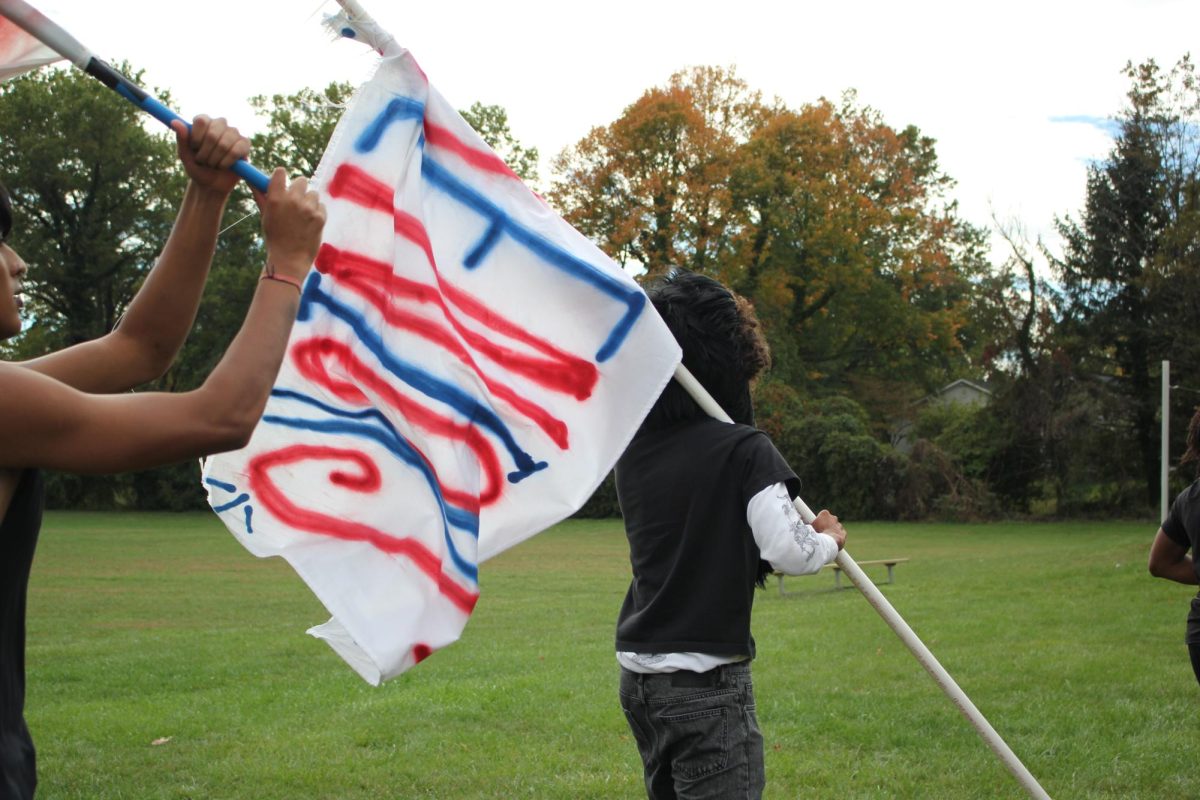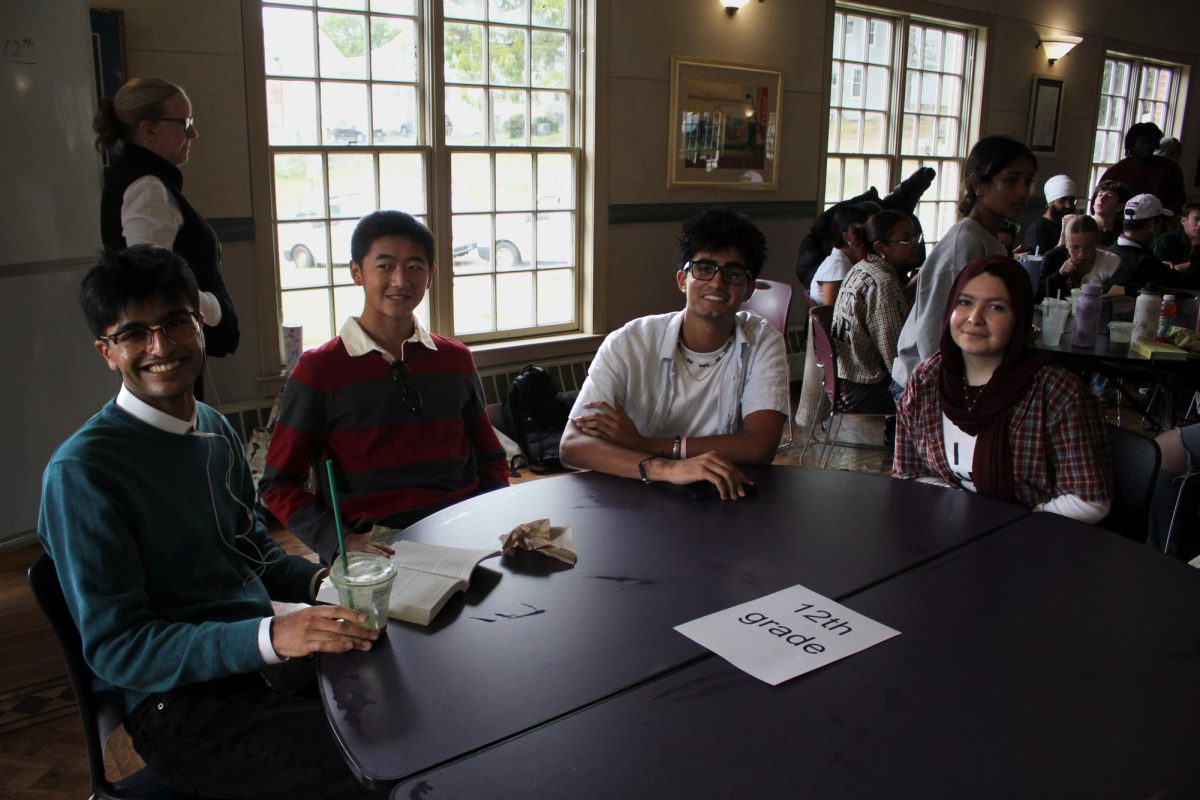
It is the job of a news reporter, in most aspects of his or her work, to try as strenuously as possible to remain both impartial and dispassionate; as an ideal, we strive to report the truth, the whole truth, and nothing but the truth. Though news events may be influenced by human passions, we offer those partisan perspectives through the lens of the people involved, doing our best to keep the reader’s perception of events untainted by our individual biases. It is true that the editorial style of article allows the writer to express his or her own views free of most constraint; yet even in the most opinionated of editorials, journalists tend to bring a clinical, rhetorical approach to their arguments. Common sense seems to dictate that carefully reasoned logic will win more minds and even more hearts than personal pronouncements of sentiment.
But today WordsWorth proudly defies the common sense of journalistic law, and chooses to embrace hyperbole as necessary in communicating what is otherwise incommunicable. Today I speak of Rambo, a three month-old Syrian refugee who is objectively the cutest, cleverest, loveliest, and most handsome baby boy in the history of the universe. There is no exaggeration in that sentence; only truth, as I have found it, and how am I thus obligated to report it.
I met Rambo while at the Fundación Escuela de Solidaridad, or FES, in Granada, Spain, which I had the opportunity to visit with fellow MFS students and teachers as part of a Service/Language Trip. FES, whose name translates into English as the Solidarity School Foundation, is a charitable organization dedicated to providing not just a home, but also a spirit of family, for those individuals whose circumstances are less than ideal. Founded by Ignacio Pereda Pérez, there are FES communities serving Spaniards in Granada, Málaga, and Madrid.
The Foundation’s website proudly proclaims that FES “offers a home to those who have been uprooted, excluded, socially disadvantaged and those living with violence: mothers with children, young immigrants, adolescents at risk and adults,” and I can assure you, they take that pronouncement seriously. We talk a lot about ‘diversity’ at MFS, to the point where sometimes it can seem to become a strange and nebulous concept—my visit to FES helped to clarify that concept for me, and I believe for every other student who went with me. Diversity of color and ethnicity and religion is important, yes—but just as important is diversity of background and opinion and life experience. FES manages to survive and thrive, not just in spite of, but to a large degree because of the sheer diversity of the people who work together there, in both senses of the term.
At FES I met undoubtedly the most diverse group of individuals I have ever encountered—a perpetually smiling Nigerian immigrant seeking a better life, three elderly Argentinean women whose cooking and crafts support the community, a Spanish family with half a dozen rambunctious children, and even an English teenager who aspires to become a famous, bilingual rapper. And while I laughed and learned alongside nearly every person at FES, learning their stories in halting English as I tried to communicate mine in twice-as-halting Spanish, none affected me half so much as their youngest member.
Among all the varied types of diversity at FES, perhaps the most striking was the diversity of age. Since one of FES’s founding tenets is the belief that children should come first, many, many small children live in the community, including Ignacio Pereda’s one year-old daughter Elvira, named for the mountain range whose shadow FES lies under. But youngest of all was little Rambo.

When I first met Rambo, I was ignorant of everything about him but what I saw on the surface; when I saw my friend and classmate Noah Borromeo holding a little baby just outside FES’s cafeteria, I did not consider the baby’s background or circumstances— why should I have? He was a baby, after all. And while I knew subconsciously that by virtue of being at FES, his family must be under some type of duress, I did not see that duress anywhere apparent in his big brown eyes.
All I saw, when I first saw Rambo, was exactly what he was; a beautiful baby boy, not yet four months, smiling a weak and toothless smile in the Spanish sunlight. He looked soft and warm, and both befuddled and pleased at the large amount of attention he was receiving; in short, Rambo was a baby. When I saw Rambo, I saw my two year-old cousins Eleanor and Addison, and my one year-old friend Jack; when I saw Rambo, I saw the children I hope to be a father to one day. He was not just like them; in a very real sense, he was them. An adorable human child, full-to-bursting with unrealized potential, happy enough with half a mind on milk and the other half on sleep. Rambo was familiar to me, as someone who loves babies, and I felt as if I had met him before. As if I knew where he was coming from and where he was going to. I was wrong.

Later that same day, I learned exactly who Rambo is. But first, I had to accept who he is not. Rambo is not a safe American baby like the kind I am familiar with, whose only worries are diaper rash and icky green food. Rambo is not even like the other Spanish children at FES, all of whom came from impoverished families yet most of whom have never experienced real danger. Rambo stands—or rather, naps—alone: Rambo is a survivor. Rambo and his mother escaped a civil war in their native land that has killed hundreds of thousands and left millions more without a home. Rambo, sucking quite contentedly on his fist, seemed blissfully unaware of all this. I, sadly, could not remain so.
Rambo is the son of a young Syrian woman whose name I was never sure of; the language barrier, difficult enough with the Spanish-speaking members of the community, was compounded by the fact that she only fluently spoke her native Arabic. As such, I was never able to fully work out how exactly Rambo’s mother had managed to escape Syria with such a young child in tow; all I know is that somehow, she did it. I can only hope that despite the language barrier, she understood how grateful I am for that.
Rambo’s actual name, the name his mother croons at his kitchen-side crib while she helps cook for the foundation, is Hadi— a traditional Syrian name that translates to ‘leader’ or ‘guide’. Rambo is an affectionate nickname given to him by an unrelated member of the community.
I cannot say that Rambo the baby and Rambo the Sylvester Stallone character are of close resemblance, but knowing what I know about his background, I find the name oddly fitting. Rambo the leader, Rambo the guide, Rambo the action hero. Rambo, who has had to cope with more in his three months than I have in my eighteen years. Rambo, whose real name is Hadi, but whose name will always be Rambo to me, because it is the name under which I grew to love him.

For all he means to me, Rambo is in many ways your typical three month-old baby. He spends some time awake, and rather more time asleep. He has long and delicate eyelashes, chubby cheeks, and liquid brown eyes as large as he himself is small. He loves sucking on other people’s fingers almost as much as he loves sucking on his own; his clenched fist is so tiny he can fit the whole thing in his mouth with room to spare.. He is never far from his mother; even when I stole him away for an hour or so as she worked in the kitchen, I knew that her thoughts never left him, nor his her, and that is how it should be. He never spits up, which by infant-standards makes him extraordinarily well-mannered. He smiles far more than he cries.
Yes, Rambo is your typical baby—by that I mean he is a miracle and a blessing to everyone who meets him. If that sounds sentimental, it is because it is genuine; if that sounds trite, it is because it is true. Over the course of my time at FES, I was not able to spend as much time with Rambo as I would have wanted to, and it hurt to leave him. But still, I am thankful for every minute I was able to spend with him.

I am thankful, yes, but I am also worried. Rambo may now be in a much safer place than he was when he was born, but even so, his future is far from clear; his only family is a young mother who can barely speak the language of the country she has fled to. And even if Rambo and his mother manage to survive and thrive in Spain, what if the hardships they have endured will negatively impact him in the future? And even if—miracle upon miracles— Rambo Hadi’s future is full of nothing but sunny days, what of the millions of other Syrian refugee children, most of whom remain living in an active warzone? What of them? These are not questions that are fun to answer, but they are questions that need answering. So I found an expert to do so.
Kevin Bath is an Associate Professor of Cognitive, Linguistic, and Psychological Sciences at Brown University; on April 9, Professor Bath spoke at the “Brains in Crisis: Stress and Resilience in Syrian Refugee Children” conference at Brown, which I was fortunate enough to attend less than a month after meeting Rambo. There were many brilliant speakers at the conference, experts in fields from mathematics to social work, who all collaborated to speak about the mental health issues facing Syrian children and how to help ensure that those children grow up into well-adjusted adults. I found Bath’s psychological research particularly fascinating—one memorable experiment uses mother mice and their litters as models of human brain development during childhood).
After his presentation, Bath sat down for an exclusive interview with WordsWorth in which he made one thing very clear: no child, no matter how traumatized by the cruelty of circumstance, deserves to be given up on. “This issue can’t be solved all in one piece,” said Bath, “but it can be solved. By working with social workers in the area, and teaching them about new scientific research done in the field of cognitive development, we can achieve very real, positive change in these children’s lives. Even simple things like the importance of getting regular outdoor exercise, to being on a regular sleep schedule, to the sense of having control over one’s environment, can alleviate stress.”
Bath was further adamant about the need to do more for these children than is currently being done; “We need to go above and beyond here. By implementing programs that lead to positive brain development for these children, we can ensure a more stable future for everyone in the region.”
Clearly the Syrian refugee crisis is not going to be solved easily—soiled by violence and entangled in thorny political issues, it remains one of the most egregious examples of human rights abuses in our times. And perhaps it is naive to assume that we can solve the problem just by recognizing how adorable Rambo Hadi is.

But when I look back on the first day I met Rambo, I realize that my initial reaction was right all along—Rambo is a baby, a human baby, nothing more, nothing less. “Syrian”, “refugee”, “immigrant”, “Middle Eastern”—these terms are of great importance in categorizing the modern world in all its complexities. But I challenge anyone to look into the eyes of a young man like Rambo, and tell him that he is anything but what he is—a human, just like the rest of us. A human who deserves the best. A human who needs our help.
Throughout the writing of this article, it was a constant effort to keep referring to Rambo in the present tense—to talk about what he ‘is’ and ‘does’, instead of what he ‘was’ or ‘did’. It makes me sad to think that, in all likelihood, I will never see him again; that even as I carry memories of infant Rambo into the future, frozen in time, child Hadi and then adult Hadi will have no recollection whatsoever of me. But hidden within that bitter reality is a sweet, sweet truth: Rambo Hadi will have a future to make for himself. And with the help of people like Ignacio Pereda Pérez of FES, Kevin Bath of Brown University, and anyone on Earth who cares enough to think and donate and help, many other children will also have that chance. So while I miss Rambo dearly, and always will, I thank fate every day for having met him, and for having learned that even apart, we all have a future together.
To those wishing to learn more about or donate to the Fundación Escuela de Solidaridad in Spain, where Rambo resides, you can do so here. Those wishing to donate to the Syrian Refugee Fund, which supports millions of other Syrian children, can do so here.







